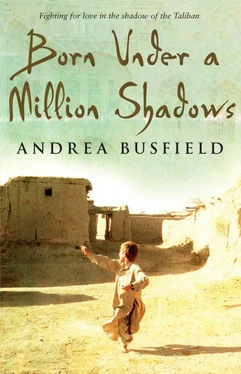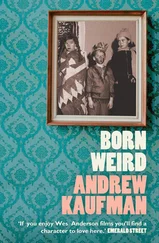And I didn’t just have one; I had loads of them. So far, Haji Khan had asked Georgie to be his wife, but I couldn’t say anything because I was pretending to be asleep when I heard about it. Dr. Hugo had almost certainly been told something “formal and serious,” but I couldn’t ask him about it because I was spying when he got told. I couldn’t tell anyone about my mother’s news because after she told me she made me promise to keep quiet until she’d been to Khair Khana to visit her sister. I couldn’t even have a man-to-man talk with Shir Ahmad about his future prospects or where he imagined we might live because my mother was torturing him with silence. I hoped for her sake that he didn’t ask another woman in the meantime. Sometimes Afghan men just want to get married, and it’s not really important who says yes to them.
In Afghanistan there are quite a few ways for men and women to get married: it can be arranged between, and inside, families; it can be a business deal or, as Mulallah nearly discovered, the payment of a debt; and there’s even a system called badal where families make a trade—one family gives their daughter to another so she can marry their son, and in return that family gives their daughter to them so their son can marry. This way nobody has to pay for anything. But although it’s cheap, it’s not the best system in the world because it can get very complicated, and in the end everybody has blood with everybody else and this makes their babies die.
I think this is maybe what happened to Pir Hederi and his wife. He once told me they had never had a child that had lived over the age of two years, and this came down to the “bad blood” between them. Pir said that when their blood mixed, it turned to fire in the bodies of their babies, damaging their brains, until eventually it killed them.
I felt a bit sorry for Pir when he told me about his dead children because I reckoned that given the chance he would have been a good father. You only had to look at the way he treated me and Jamilla, and the way he used to take care of Spandi.
“You live, you lose, you die,” Pir grumbled one day as the radio spoke of another bomb that had come to eat away at some families in Kandahar. “Who in their right mind would bring a child into this world of ours?” It wouldn’t have been nice to remind Pir Hederi that he and his wife had in fact tried and failed to do just that, so I said nothing.
Of course, Pir Hederi wasn’t the only man without a son; there was also Shir Ahmad. But at least he had his computer school to keep his thoughts busy. And maybe one day he would make a baby with my mother. Who knew? In fact, who knew anything for certain?
The only sure thing in this life as far as I could see was that no one would ever be able to hold two watermelons in one hand.
The following day after school, which had been as boring as a room full of women, I was surprised to find Haji Khan waiting in his Land Cruiser for me at the gate. I then realized it was a full week since we had buried Spandi and it was time for prayer.
Even though it was another sad occasion, my face couldn’t help smiling, because Haji Khan had not only remembered my friend, and me, but also recently saved Mulallah from an old man with curled fingers; he’d helped her mother put the fat back on her bones; he wanted to marry Georgie instead of shame her as a girlfriend; and whether he was a drug lord or not, he had this year decided not to be one.
“Ready?” was all he said as he brought down the window to speak to me.
“What about my bike?” I asked.
Haji Khan mumbled something behind him, and the big man with the big gun who had traveled with us to Khair Khana the last time appeared. He picked up my bike and placed it carefully in the back of the Land Cruiser. Haji Khan then nodded at me to get in.
Inside, I leaned forward to give him my hand.
“How is everyone?” he asked.
“Good,” I answered. “Georgie was very happy because of the help you gave Mulallah’s family.”
“Was she?”
“Yes.”
“I’m glad. The family deserved a little luck.”
I was going to make a joke about luck and Baba Gul’s cards, but then I remembered myself.
“Haji Sahib?” I asked. “Why don’t you have as many bodyguards with you these days?”
This was now the third time I’d seen Haji Khan with only one of his men instead of his usual army.
“Because it is better this way,” he replied. And when he looked in the mirror and saw the next question arriving in my eyes, he added, “At some point, if you’re trying to convince people that the country is changing for the better, you’ve got to start believing it yourself—and even if you don’t, you’ve at least got to give the impression that you do.”
When we returned from Spandi’s prayers, Haji Khan dropped me off at Pir Hederi’s shop because I was already late for work. As soon as I set foot in the door I could see the old man was up to one of his schemes, and by the grin on his face it was going to involve me.
“We’re going into the food business!” he told me as I came to sit on a crate of Pepsi beside him. “That’s the future, Fawad—Pir Hederi’s Take-out Service.”
“Don’t people already take out food from the shop?” I asked.
“Well, yes, in a way they do… but I’m talking snack food, that sort of thing. It was your friend James who gave me the idea.”
I groaned in reply. James was almost as crazy as Pir Hederi with his get-rich-quick schemes. Lately, after talking to someone, the journalist had become convinced that one of the mountains in the Hindu Kush had a secret door leading to a cave filled with treasure, so he spent all of his time looking through old papers from the Mines Department and learning how to rock climb with the help of the Internet. My guess was that if there was treasure hiding in Afghanistan’s mountains, it would probably be on sale in a Pakistani market by now, along with all the rest of our old stuff.
“So, what’s the idea?”
“Well, your friend James came in here looking for this thing called ‘sandwich.’ Apparently, that’s bread filled with something.”
“I do know what a sandwich is.”
“Good! Then we’re halfway there! Apparently all the foreigners are crazy for these things. So I’ve been trying some out.”
Pir pulled out a tray from underneath the counter. It was piled high with folded-over pieces of naan bread.
“What happened to the ones at the end?” I asked, picking up one of Pir’s homemade “sandwiches.”
“Let me see.” Pir reached out, and I placed the ragged piece of naan in his hand. “Oh right,” he said. “Dog must have got to that. Anyway, have a taste and tell me what you think.”
“I’m not eating that one,” I said, pushing Pir’s hand away.
“Don’t be so gay,” he replied, taking a bite—and quickly spitting it out again. “Allah wept. No wonder the old boy didn’t finish it off. Write it down, Fawad: onion and mango don’t mix.”
“Onion and mango?”
“Why not? James said the more exotic a sandwich is, the better.”
“He was messing with your head!” I said, although in truth I’d seen him eating banana in bread before, which I didn’t think would be the choice of most normal people.
“Okay,” Pir continued, never one for giving up, “try the ones on the tray. Jamilla made most of them before she went to school.”
Because I was hungry, and because this was my job—such as it was—I did as he ordered. Fifteen minutes later we had two lists. Cheese and tomato, peanut butter, cucumber and mutton, strawberry jam, yogurt and kebab, egg and chicken—they all worked. Lettuce and cream, mashed-up apple, honey and onion, honey and cheese, mustard and egg, and boiled carrots definitely didn’t.
Читать дальше












